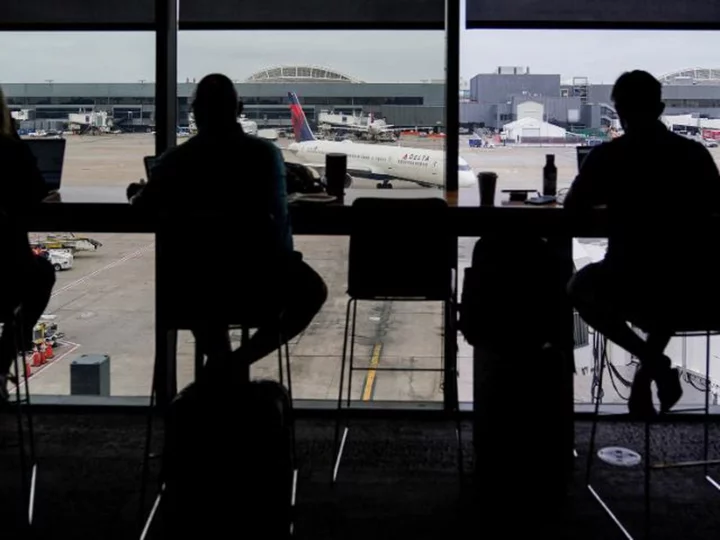A looming deadline for airlines to retrofit their planes with updated technology could potentially disrupt some flights during one of the heaviest travel weekends of the year.
On July 1, wireless carriers such as AT&T and Verizon are set to begin running their 5G cellular networks at higher power levels near US airports, marking the end of a phase-in period.
The change may lead to greater 5G performance in and around airports, but it may also lead to radio interference affecting aircraft that have not yet been equipped with gear that can accommodate the signals.
Specifically, the 5G signals could affect equipment known as radar altimeters, which bounce radio waves off of the ground to inform pilots of how high they are off the ground. Radar altimeters are especially important for landings in inclement weather and other low-visibility conditions, where other methods of determining an aircraft's altitude may be impaired.
Transportation Secretary Pete Buttigieg said last week that more than 80% of the US domestic aircraft fleet had been retrofitted, but that "a significant number of aircraft" remain to be upgraded. Most of the outstanding planes are operated by foreign airlines, he wrote in a letter to Airlines for America, an industry trade group. But he warned that in general, failure to complete the transition could lead to travel disruption, including delays and cancellations.
"Passengers must not bear the brunt of any airline's inability to equip sufficient aircraft to be able to operate safely in the 5G C-band environment," Buttigieg wrote in the letter obtained by CNN, "and passengers cannot be expected to bear the responsibility for an airline that fails to realistically adjust schedules" in response to a lack of 5G readiness.
Multiple US air carriers told CNN Thursday that they will be able to meet the deadline. American Airlines and Southwest Airlines said that their fleets are already fully upgraded, while a spokesperson for United Airlines said the company will "complete this work on our mainline fleet by July 1."
Delta Air Lines said that due to a supplier issue, the airline will not be able to meet the July 1 deadline, with about 190 narrowbody aircraft still running the old radar altimeters. It added that all of its widebody aircraft will have the upgraded equipment by the deadline.
While acknowledging the issue could restrict flights affected by inclement weather, a Delta spokesperson said the company expects "minimal operational impact."
"Safety of flight will never be in question, and Delta will adhere to all directives and regulations," the company said in a statement.
The Regional Airline Association, meanwhile, said that most of its members' planes were retrofitted ahead of a deadline last fall, and that they have plans to retrofit the remaining planes.
Saturday's decision by wireless carriers to ramp up their 5G network operations near airports comes after a voluntary one-year delay by the wireless providers to allow airlines time to retrofit their fleets. That delay followed an even earlier postponement negotiated by the wireless carriers and the aviation industry, which had raised broad concerns that 5G signals might affect air travel.
The deadline comes after a week of heavy flight disruptions linked to weather that are beginning to subside, with the exception of United.
Buttigieg earlier told CNN that Friday "will be the busiest day of this holiday travel weekend," and that "it may even prove to be the busiest day for air travel since the pandemic."
CNN's Gregory Wallace contributed reporting.

